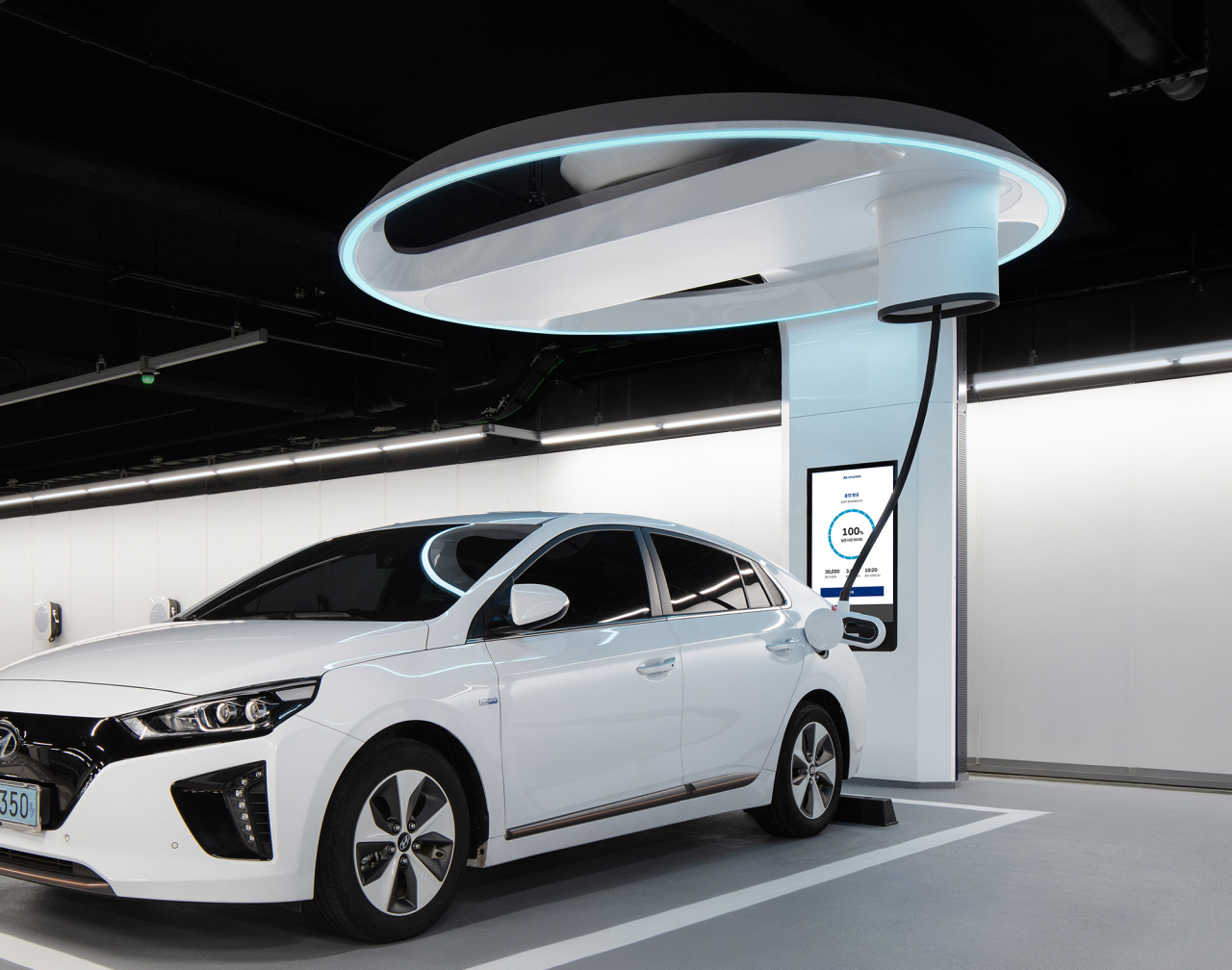 |
An electric vehicle is connected to Hi-Charger, an exclusive ultrahigh speed charger developed by Hyundai Motor. (Hyundai Motor) |
South Korea will ramp up spending on the next-generation automobile, chip and bio-health sectors next year in an effort to nurture homegrown companies into leading players in the global market, the finance minister said Monday.
Under a budget proposal for the 2022 fiscal year drawn up by the government, spending on the “Big 3” industries will increase to 6.3 trillion won ($5.41 billion), up 43 percent from the amount allocated this year. The budget plan will be presented to the parliament on Tuesday.
In order to spur growth of the Big 3 industries and help them capture a leading position in the global market, the government will continue to seek supportive measures including tax benefits and incentives.
“The growth of the Big 3 industries will not only contribute to overcome the immediate crisis we face but also become a key driver of the country’s economy in the future,” Finance Minister Hong Nam-ki said at a government meeting on strategies for innovative growth.
To prepare for the rapid transition from internal combustion engine vehicles to eco-friendly cars, authorities plan to boost the number of electric vehicle repair shops to 3,300 by 2025 from the current 1,100, which account for 3 percent of all auto care repair shops. More than 26 repair garages for hydrogen-fueled vehicles will also be established in the next four years.
By 2024, it aims to have fostered 46,000 auto mechanics and technicians trained for next-generation cars after changing the curriculum of automobile engineering colleges.
For the development of advanced sensors -- a core technology for autonomous vehicles and mobile phone devices that detect external information -- the government will spend 200 billion won by 2028 to carry out R&D projects.
Currently, South Korea has captured only 2 percent of the rapidly growing global advanced sensor market, according to the ministry. The global advanced sensors market was valued at $198.9 billion in 2020 and is projected to soon reach $332.8 billion with an average annual growth of 11 percent.
The ministry said it will support the production of sensor prototypes using public infrastructure such as the Nano Advanced Institute of Technology and to help products enter overseas markets by establishing a dedicated team.
Asia’s fourth-largest economy will also seek to sharpen the global competitiveness of companies in the pharmaceuticals, medical devices and cosmetics sectors.
Last year, the three sectors accounted for 10 percent of the overall manufacturing industry with their sales representing 2.5 percent of gross domestic product, up 0.6 percentage point from 2014.
But they failed to advance their positions on the global stage with only two cosmetics companies being included in the top 50 companies in the sector.
By 2030, the country aims to put eight companies on the list of their respective sectors -- two each in the pharmaceuticals and medical devices industries and four in the cosmetics industry.
To achieve the goal, a joint R&D project will be set up by allowing private companies to develop innovative technologies at high-tech national medical complexes in Osong, North Chungcheong Province, and Daegu. The creation of a policy fund worth 100 billion won will be taken into account, the ministry added.
By Park Han-na (
hnpark@heraldcorp.com)








![[Today’s K-pop] Blackpink’s Jennie, Lisa invited to Coachella as solo acts](http://res.heraldm.com/phpwas/restmb_idxmake.php?idx=644&simg=/content/image/2024/11/21/20241121050099_0.jpg)